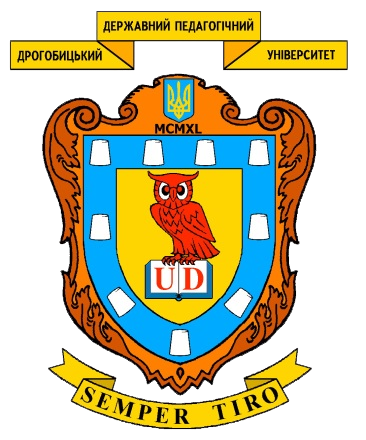VALUE-SEMANTIC ORIENTATIONS AS DETERMINANTS OF THE FUTURE PSYCHOLOGISTS’ PROFESSIONAL CULTURE
DOI:
https://doi.org/10.32782/2312-8437.52.2023-2.2Keywords:
professional culture, value orientations, meanings, professional training, future psychologistsAbstract
Public demand sets high demands on the professional training of future psychologists. One of the urgent problems is the formation of the professional culture of the future specialist. The article analyzes value orientations and meanings as determinants of the professional culture of future psychologists. A theoretical analysis of the concept of ‘professional culture’ has been carried out. It is indicated that there are disagreements in the opinions of scientists on the interpretation of this phenomenon. It has been established that the level of formation of professional culture determines the degree of readiness of an individual for activity in the profession. In the context of our research, it has been determined that professional culture is manifested in the way of organization, development and implementation of professional activity based on axiological principles. It has been determined that the role of value orientations in the process of formation of professional culture is that value orientations determine professional behavior, ensuring its content and orientation. It has been noted that the level of development of the professional culture of future psychologists will be influenced by the integral of the professional value of future specialists, which consists of the personal axiosphere, professional axiosphere, and social axiosphere. It has been established that by assimilating and transforming values, the student builds his own value system based on which he develops a personal and professional concept of professional culture and the meaning of professional activity. We believe that professional culture and value orientations are complementary formations, as they are formed under the influence of each other, determine not only the cognitive interests of the individual and professional interests, but also determine worldview guidelines, the general life credo. Since the professional culture of the future psychologist begins to form during training, we assume that its formation is also influenced by the values of university education. It has been concluded that values and meanings in professional culture act as regulators of behavior and relationships of the future psychologist in the ‘psychologist-client’ system.
References
Волошина В. В. Аксіологічна модель сучасної професійної підготовки майбутніх психологів. Педагогічний процес: теорія і практика (Серія : Психологія). 2018. № 3(62). С. 29‒36.
Гриньова В. М. Формування педагогічної культури майбутнього вчителя (теоретичний та методичний аспекти) : автореф. дис... д-ра пед. наук : 13.00.04. Київ, 2001. 45 с.
Ісаєнко С. А. Формування професійної культури у студентів інженерно-технічних спеціальностей засобами іноземної мов : дис… канд. пед. наук : 13.00.04. Київ, 2009. 227 с.
Карпенко З. С. Аксіологічна психологія особистості : монографія. Івано-Франківськ : Лілея НВ, 2009. 512 с.
Радчук Г. К. Психологічні засади професійного аксіогенезу особистості. Психологія особистості. 2012. № 1. С. 138–150.
Рибалка В. В. Психологія професійного самовизначення для здорових старшокласників : метод. рекомендації. Київ : АПН України, 2004. 25 с.
Савош Г. Особистісно орієнтоване виховання – нова освітня філософія. Вища освіта України. 2006. № 1, додаток. С. 29–34.
Шетеля Н. І. Засоби практичної реалізації аксіологічного підходу у сфері професійної підготовки майбутніх фахівців у галузі культури і мистецтв. Інноватика у вихованні. 2022. Випуск 15. С. 254–262.
Чепелєва Н. В. Формування професійної компетентності в процесі вузівської підготовки психолога-практика. Актуальні проблеми психології. Київ : Інститут психології АПН України, 1999. С. 271–279.







